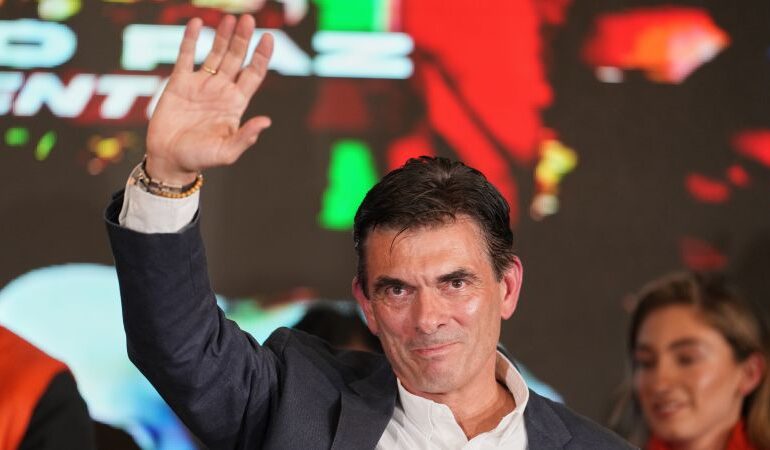Centrist Rodrigo Paz Claims Bolivia’s Presidency, Ending Leftist Era

Rodrigo Paz, a centrist candidate from the Christian Democratic Party, emerged victorious in Bolivia’s presidential runoff on October 29, 2023. His win marks the end of nearly two decades of leftist governance, defeating conservative Jorge “Tuto” Quiroga with approximately 54.5% of the vote compared to Quiroga’s 45.5%, according to early results from Bolivia’s electoral tribunal. Paz is set to officially take office on November 8, 2023.
Paz’s election reflects a significant shift in Bolivia’s political landscape, which has been dominated by the Movement to Socialism (MAS) since 2006. The MAS party, initially backed by a strong Indigenous majority, has seen its support decline sharply amid a severe economic crisis. Analysts indicate that Paz’s moderate platform resonated with voters disillusioned by the ruling party’s policies while remaining cautious of Quiroga’s austerity proposals.
Economic Challenges Drive Political Change
The backdrop to this electoral shift is a fragile Bolivian economy, plagued by soaring inflation rates, now at a 40-year high, and a steep decline in natural gas exports. Both candidates campaigned on the promise of economic reform, but their approaches differed significantly. Paz advocated for gradual reforms, including tax incentives for small businesses and greater fiscal autonomy for regions, while Quiroga pushed for more drastic austerity measures and an International Monetary Fund (IMF) bailout.
Paz highlighted the need for change, stating, “We’re going for a new stage of Bolivian democracy in the 21st century. We’re going to try to build an economy for the people.” His comments reflect a commitment to a more balanced economic model that reduces state control over the economy.
According to Glaeldys Gonzalez Calanche, an analyst for the Southern Andes at the International Crisis Group, “This election marks a political turning point. Bolivia is heading in a new direction.” Both candidates expressed intentions to strengthen ties with the United States, aiming for support to stabilize the nation’s economy.
Paz’s Coalition and Future Prospects
Despite his victory, Paz faces significant challenges ahead. His party, the PDC, holds only 49 of the 130 seats in the lower house and 16 of the 36 in the Senate, necessitating alliances to govern effectively. The outgoing administration has struggled with securing foreign currency for essential fuel imports, complicating Paz’s plans for economic recovery.
Paz has proposed a $1.5 billion economic cooperation deal with U.S. officials aimed at ensuring fuel supplies, reflecting an urgent need to stabilize the energy sector. His strategy includes phasing out universal fuel subsidies while providing targeted support to vulnerable populations.
The incoming president’s running mate, Edman Lara, a former police officer known for his anti-corruption TikTok videos, has bolstered Paz’s appeal, particularly among younger voters. Lara’s populist approach has helped connect the campaign with a demographic eager for change.
As Bolivia navigates this political transition, the Central Obrera Boliviana (COB), the country’s main labor union, has indicated its readiness to oppose any threats to the social and economic gains achieved during the MAS era. With potential street protests looming, Paz will need to balance reform with the expectations of various interest groups.
The results of this election not only signify a change in leadership but also an opportunity for Bolivia to redefine its national direction in the face of pressing economic challenges. The world will be watching as Paz prepares to take the reins of a country ripe for transformation.






